How Rising Interest Rates Impact Property Investments
6 January 2025
If you’re a real estate enthusiast or someone who's just starting to dip your toes into property investment, you’ve probably heard a lot of buzz about rising interest rates. But what does it actually mean for the real estate market? How does it impact property investments? These aren’t just questions for economists—these are real issues that affect anyone looking to buy, sell, or invest in property. Let's break it down together.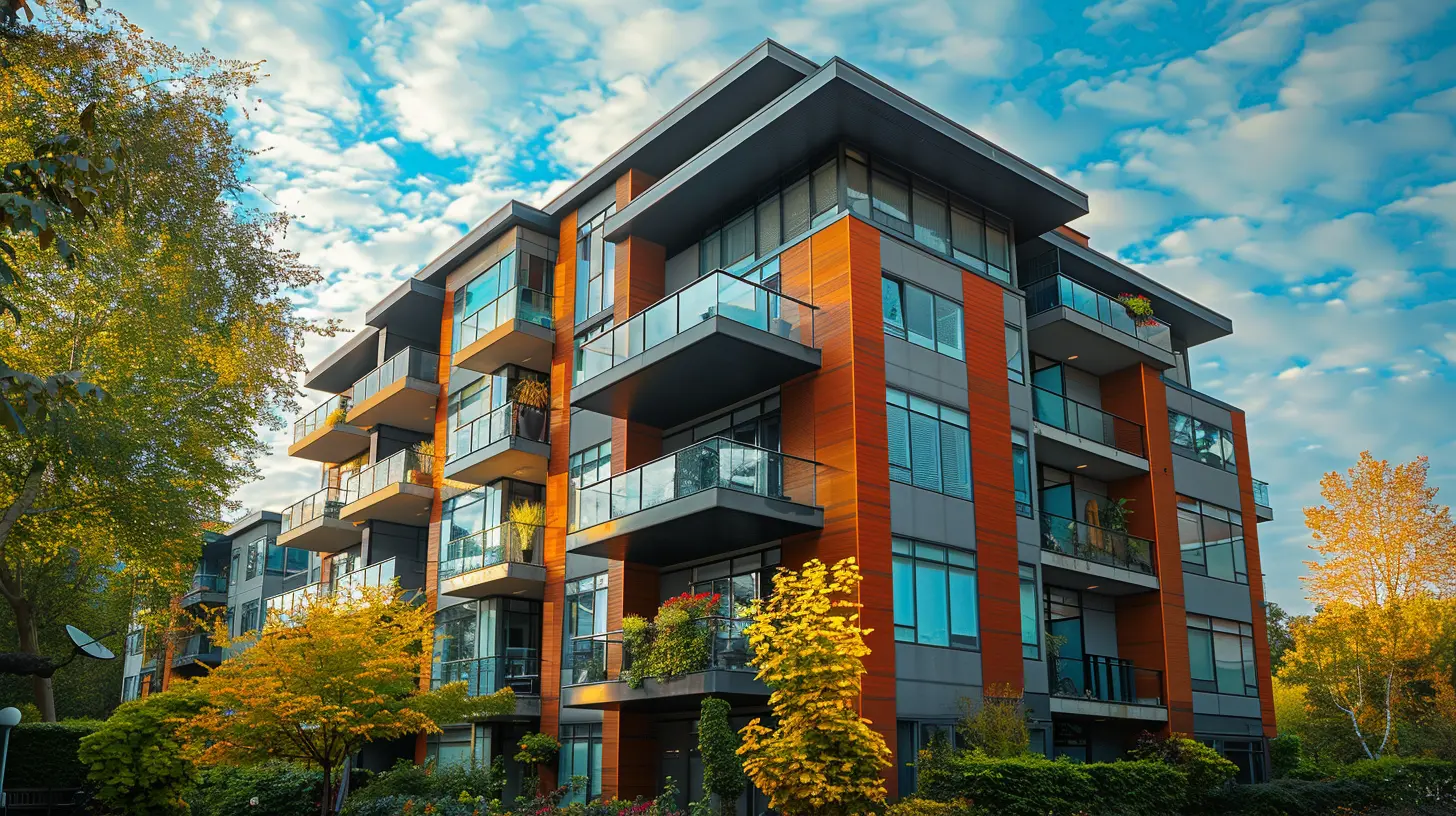
Why Are Interest Rates Rising in the First Place?
First, let’s tackle the "why" behind rising interest rates. Central banks, like the Federal Reserve in the U.S., tweak interest rates to stabilize the economy. When inflation starts rising and prices balloon faster than our wallets can keep up, central banks raise interest rates to pump the brakes on spending and borrowing. Think of it like slowing down a car that’s zooming down a highway too fast—it’s uncomfortable, but necessary to avoid a crash.But here's the thing. While higher interest rates might slow inflation, they ripple across various markets, including—you guessed it—real estate. And while it may feel like a dry topic, it’s actually pretty fascinating when you consider the domino effect it creates.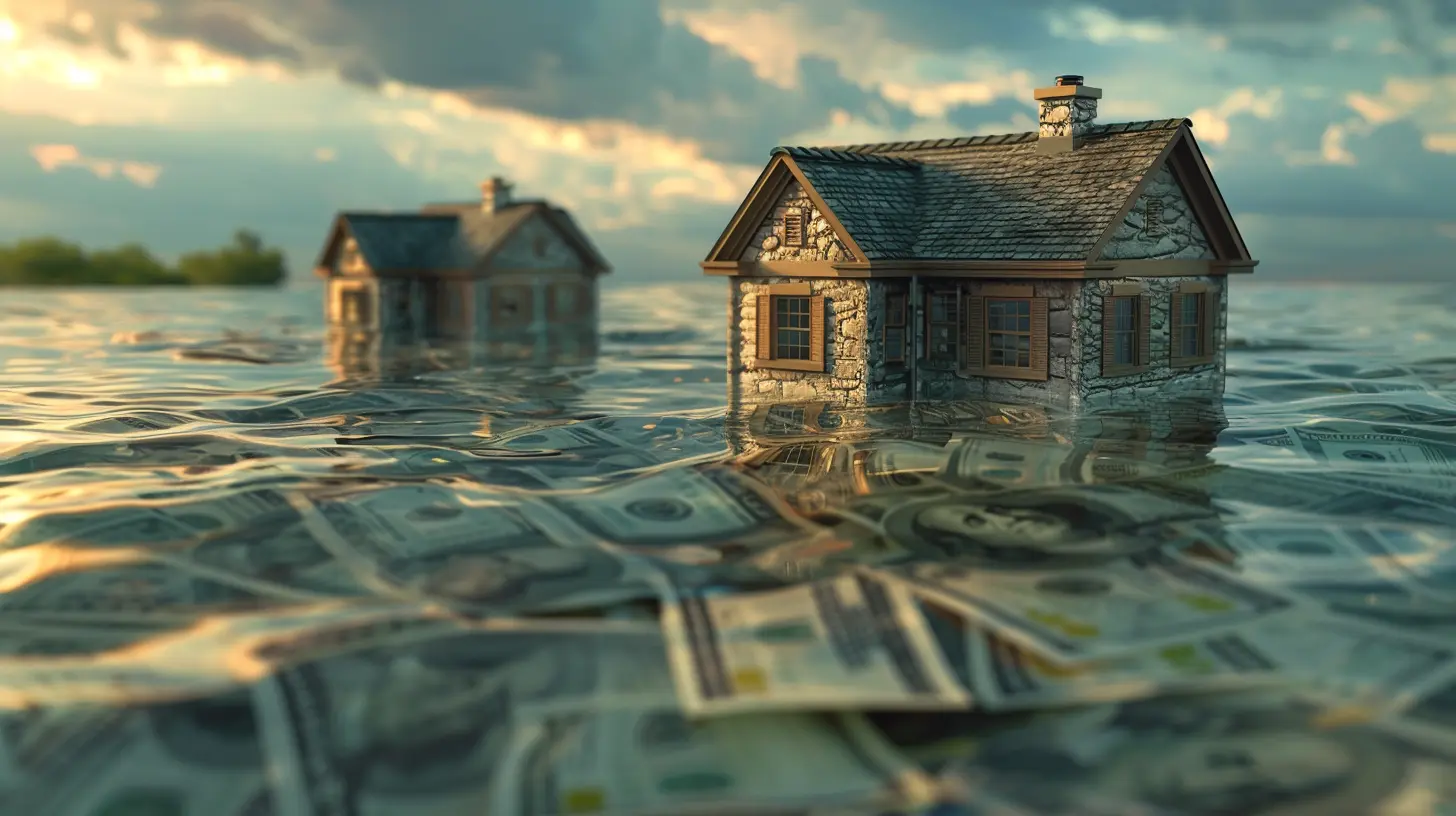
The Relationship Between Interest Rates and Property Investments
Alright, so let’s connect the dots. When central banks raise interest rates, borrowing money becomes more expensive. That means higher mortgage rates for homebuyers and increased lending costs for investors. Suddenly, buying property isn't as budget-friendly as it was when rates were low.Imagine you're at your favorite coffee shop, and one morning your usual cup of coffee doubles in price. You’d probably think twice about grabbing that latte, right? It’s the same with property investments. Higher borrowing costs can make buyers hesitate, which can slow down the housing market as a whole.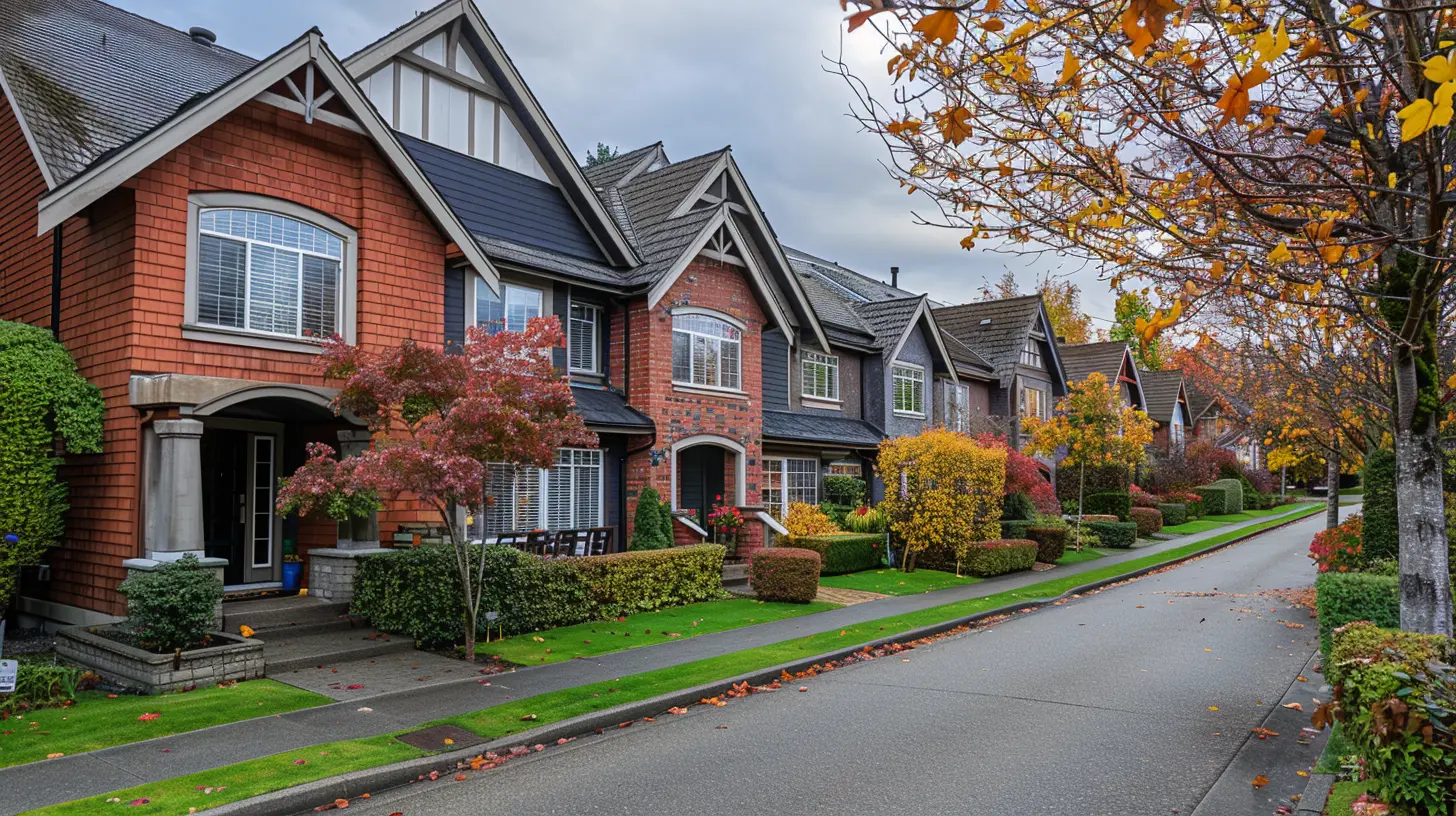
Key Impacts of Rising Interest Rates on Property Investments
1. Reduced Affordability for Buyers
This one’s a no-brainer. When mortgage rates go up, monthly payments increase, even if the property price stays the same. For example, let’s say you’ve been eyeing a $300,000 property. If interest rates climb from 3% to 6%, your monthly payment could jump by hundreds of dollars. That extra cost could push some buyers out of the market entirely.Fewer buyers mean sellers might need to lower their asking prices to attract offers. For investors, this could be a double-edged sword. While it might be harder to sell property at a premium, it could also present opportunities to snag deals as prices cool off.
2. Changes in Rental Demand
Not everyone can afford to buy in a high-interest-rate environment, which often turns people toward renting. This shift can boost demand for rental properties, making them a more attractive option for investors. If you own rental units, you might see higher occupancy rates and even be able to charge slightly higher rent. However, there’s a catch—higher interest rates also mean financing new rental properties costs more.So, it’s all about weighing the pros and cons. Are you willing to pay more upfront for your mortgage in the hopes of reaping long-term rental income? That’s a question every investor has to answer individually.
3. Slowed Property Appreciation
When interest rates rise, property appreciation—the steady increase in property value over time—can tap the brakes. Why? Because higher borrowing costs can lead to less demand, and less demand can result in slower price growth.But don’t get it twisted; this doesn’t mean property values always fall when interest rates rise. It just means the rapid growth many markets have experienced might simmer down to a slow boil. For long-term investors, this might not be such a big deal since they’re in it for the long haul. But if you're a flipper who needs quick appreciation to make a profit, this could be a headache.
4. Increased Competition in Affordable Markets
When borrowing becomes expensive, investors often turn their attention to more affordable regions or properties. Think smaller cities, up-and-coming neighborhoods, or even fixer-uppers. These options tend to offer better bang for your buck, even in a high-rate climate.But here’s the kicker: you’re probably not the only one thinking this way. Rising interest rates can lead to increased competition for these “hidden gem” properties. So, while you might not be battling a bidding war for a luxury penthouse, you could face stiff competition for that affordable duplex in a desirable school district.
5. Impact on Commercial Real Estate
It’s not just residential properties feeling the heat—commercial real estate markets also take a hit when interest rates rise. Businesses looking to buy office buildings, warehouses, or retail spaces may second-guess their investments due to higher financing costs. And if you’re a commercial real estate investor, you’ll probably need to sharpen your pencils to ensure any deal still makes financial sense.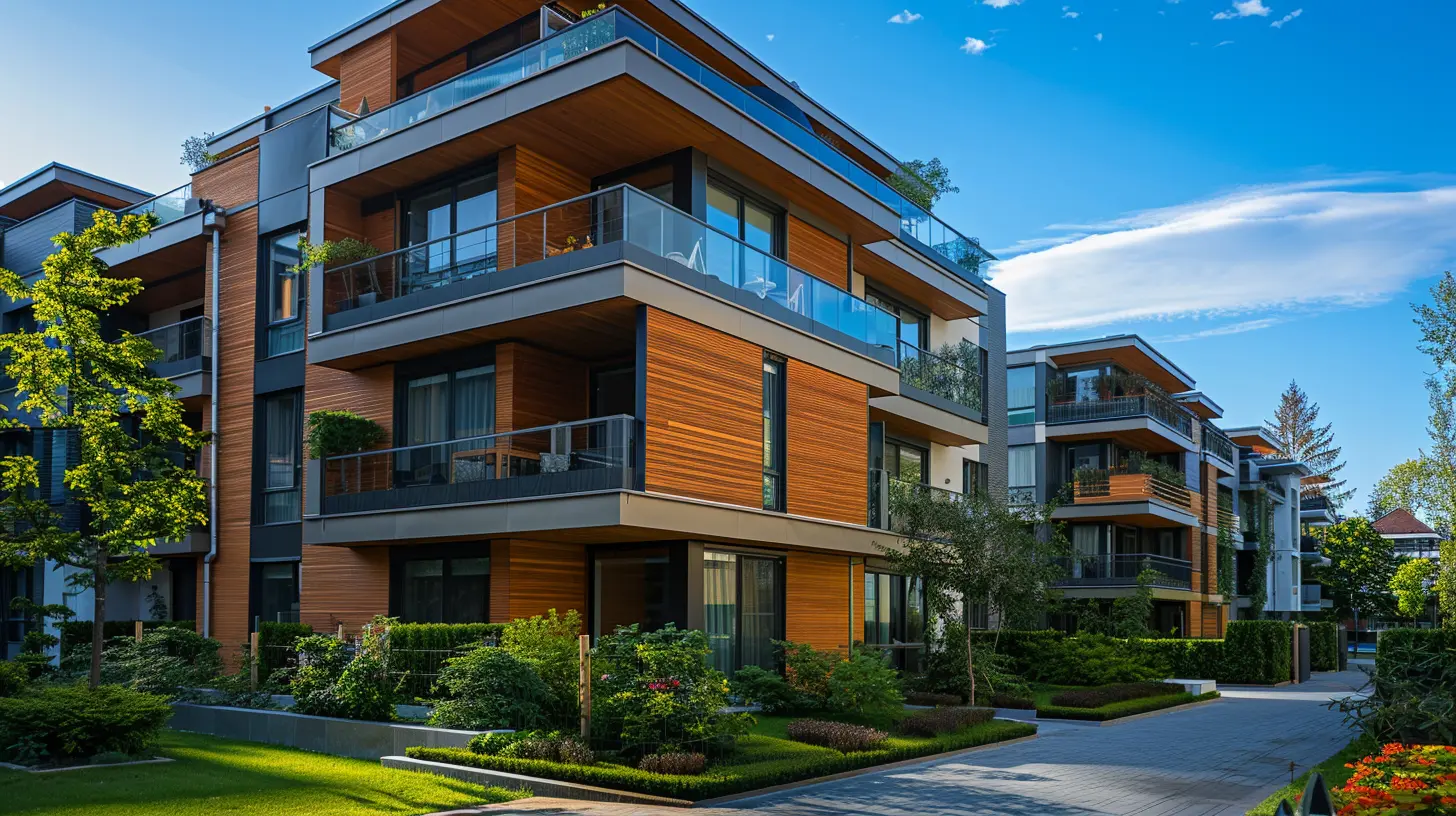
Strategies to Navigate Higher Interest Rates
Rising rates don’t necessarily mean you should hit the brakes on property investing. They just mean you need a solid game plan. Here are some strategies to help you pivot:1. Lock in Fixed-Rate Loans
If you’re financing a property, consider locking in a fixed-rate loan instead of a variable-rate one. Fixed rates shield you from future rate hikes, so you’ll know exactly what your monthly payments will be.2. Focus on Cash Flow
When interest rates rise, positive cash flow becomes more important than ever. Instead of banking on property appreciation, look for investments that generate reliable rental income. Think of it like planting a tree that drops fruit every season—you’re not as worried about the tree’s size as long as it keeps producing.3. Reevaluate Your Budget
Higher interest rates can eat into profits, so it’s crucial to crunch the numbers before diving into a deal. Consider all your costs—from mortgage payments to maintenance—and make sure the investment aligns with your financial goals.4. Explore Creative Financing Options
If traditional loans aren’t favorable, you might explore alternatives like partnerships, seller financing, or even leveraging equity from another property. Sometimes, thinking outside the box can lead to opportunities you wouldn’t have considered otherwise.Is It All Doom and Gloom for Investors?
Not at all! Real estate is a cyclical market, and rising interest rates are just one phase of the cycle. Every challenge comes with opportunities if you’re paying attention. For instance, while higher rates might scare off some buyers, they can also weed out speculation, leaving serious investors with less competition. It’s all about how you position yourself and play the long game.The Bottom Line
Rising interest rates undoubtedly bring a shift to the property investment landscape, but they don’t have to spell disaster. Sure, there will be challenges—higher borrowing costs, slower appreciation, and shifting demand—but there are also opportunities for savvy investors who can adapt. Whether it’s focusing on rental properties, locking in fixed-rate deals, or exploring affordable markets, there’s a playbook for every scenario.At the end of the day, real estate isn’t just about timing the market. It’s about time in the market. Stay informed, stay flexible, and don’t let interest rate headlines scare you off from making informed decisions.
all images in this post were generated using AI tools
Category:
Investment PropertiesAuthor:

Basil Horne
Discussion
rate this article
19 comments
Yasmine McGrath
Rising interest rates increase borrowing costs, potentially slowing property demand and investment returns.
April 6, 2025 at 3:34 AM

Basil Horne
You're correct; rising interest rates can dampen property demand by increasing borrowing costs, which may ultimately affect investment returns. It's a critical factor for investors to consider.
Journey Gray
Rising interest rates can significantly increase borrowing costs, potentially reducing property investment returns and demand.
April 2, 2025 at 11:28 AM

Basil Horne
You're absolutely right. Rising interest rates can indeed elevate borrowing costs, which may dampen property investment returns and overall demand. It's a critical factor for investors to consider in today's market.
Sarina Campbell
Navigating rising rates can be tough, but resilience pays off.
February 10, 2025 at 4:48 AM

Basil Horne
Thank you! Absolutely, resilience and strategic planning are key to successfully managing the challenges of rising rates in property investments.
Kaitlyn McConnell
Great insights! Understanding interest rates is essential for making informed property investment decisions. Thank you!
February 3, 2025 at 8:07 PM

Basil Horne
Thank you for your feedback! I'm glad you found the insights helpful for your property investment journey.
Zarenith Matthews
Rising interest rates can create challenges, but they also present unique opportunities for savvy investors to strategically capitalize on market shifts.
January 29, 2025 at 5:32 AM

Basil Horne
Absolutely! Rising interest rates can indeed be challenging, but they also allow investors to find undervalued properties and negotiate better deals, paving the way for potential long-term gains.
Lara McCaw
Rising interest rates can diminish property affordability, potentially slowing investment growth and market activity.
January 26, 2025 at 12:20 PM

Basil Horne
Thank you for your insight! Indeed, rising interest rates can significantly affect property affordability and may lead to a slowdown in both investment growth and overall market activity.
Eden McBride
Rising rates decrease affordability; choose investments wisely.
January 22, 2025 at 12:14 PM

Basil Horne
Thank you for your insight! Rising rates indeed challenge affordability, making strategic investment choices crucial.
Calder Pacheco
Invest wisely, stay informed!
January 18, 2025 at 12:58 PM

Basil Horne
Absolutely! Staying informed about market trends and interest rates is key to making smart investment decisions.
Bennett Cross
Rising interest rates can significantly deter property investment by increasing borrowing costs, yet they may also create opportunities for cash buyers and bargain hunters.
January 15, 2025 at 4:30 AM

Basil Horne
Thank you for your insight! Indeed, rising interest rates can create challenges for many investors while simultaneously presenting unique opportunities for cash buyers and those seeking bargains.
Zephyrae Foster
Great insights! Understanding the effects of rising interest rates on property investments is crucial for making informed decisions. Keep up the fantastic work!
January 11, 2025 at 11:45 AM

Basil Horne
Thank you for your feedback! I'm glad you found the insights valuable.
Kimberly Meyers
Oh joy, higher interest rates! Because who doesn’t love paying more to borrow money? Truly the silver lining of property investing!
January 11, 2025 at 5:36 AM

Basil Horne
I understand your frustration! Higher interest rates can be challenging, but they can also create opportunities for strategic investors to negotiate better deals and potentially benefit from lower property prices.
Zareth Wood
Rising interest rates can challenge property investments, yet they also present opportunities for savvy investors to reassess strategies, negotiate better deals, and focus on long-term value rather than immediate gains. Patience pays off.
January 10, 2025 at 8:46 PM

Basil Horne
Thank you for your insightful comment! You're right—while rising interest rates can pose challenges, they also create unique opportunities for strategic investors to adapt and focus on long-term value. Patience and adaptability are key.
Kingston Oliver
Ah, rising interest rates—the ultimate party crasher for property investors! It’s like finding out your favorite pizza place suddenly only serves kale smoothies. Time to dust off the ol’ negotiation skills and maybe invest in a good pair of shoes for all that walking!
January 10, 2025 at 11:56 AM

Basil Horne
Absolutely! Rising interest rates certainly change the game for property investors, making negotiations and adaptability more crucial than ever. Time to get creative!
Vincent Cross
Rising interest rates can significantly affect property investments, increasing borrowing costs and potentially dampening demand, ultimately influencing property values and returns.
January 9, 2025 at 7:22 PM

Basil Horne
Thank you for your insightful comment! Indeed, rising interest rates can lead to higher borrowing costs, which can impact demand and ultimately affect property values and investment returns. Your perspective highlights a crucial aspect of the current market.
Katie McCord
Great insights! While rising interest rates can seem daunting, they also present unique opportunities for savvy investors. Remember, every challenge brings a chance to grow—whether it's finding undervalued properties or negotiating better deals. Stay positive and keep exploring; your next investment gem might be just around the corner!
January 9, 2025 at 4:27 AM

Basil Horne
Thank you for your insightful comment! You're absolutely right—rising interest rates can indeed create opportunities for investors willing to adapt and seek out undervalued assets. Let's stay optimistic and keep looking for those gems!
Miriam McClure
Great insights! Navigating rising interest rates can be tricky, but smart strategies can still lead to success!
January 8, 2025 at 5:34 AM

Basil Horne
Thank you! I'm glad you found the insights helpful. Navigating these challenges is indeed crucial for successful property investments.
Nala McMeekin
Rising interest rates are like a surprise guest at a dinner party—unexpected and slightly awkward. While they may squeeze the budget, savvy investors know how to turn that guest into an ally. With a pinch of creativity and a dash of patience, great opportunities still await in the property market!
January 7, 2025 at 8:23 PM

Basil Horne
Absolutely! Navigating rising interest rates can indeed be challenging, but with the right strategies, investors can find unique opportunities in the property market. Your analogy perfectly captures the current landscape!
Ezra McGivern
Rising interest rates can significantly affect property investments, increasing mortgage costs and potentially reducing buyer demand. Investors should reassess strategies to navigate this changing market landscape.
January 6, 2025 at 8:56 PM

Basil Horne
Thank you for your insight! Indeed, rising interest rates necessitate a strategic reevaluation for property investors to adapt to changing financial conditions.
Idris McWain
Rising interest rates might feel daunting, but smart investors can still find great opportunities in this shifting market!
January 6, 2025 at 4:43 AM

Basil Horne
Absolutely! Rising rates can present challenges, but they also create unique investment opportunities. Smart strategies can leverage these changes for long-term gains.
MORE POSTS

Veteran Investment Loans: How to Take Advantage of VA Financing

Green Building Projects and the Challenges of Permitting

How to Analyze Market Trends for Commercial Property Investment

Intersection of Income Taxes and Property Taxes: What to Know

Budget-Friendly Upgrades to Add Value to Your Flip

Understanding the Risks and Rewards of Property Flipping

Landlord Responsibilities in Multi-Unit Buildings: How to Protect Your Rights

Common Mistakes to Avoid When Flipping Your First House
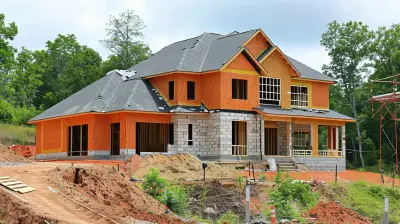
The Pros and Cons of Purchasing a Fixer Upper

How to Prepare Your Permit Application for Fast Approval

The Role of Technology in Transforming Commercial Real Estate

Indoor Plants as Essential Elements of Modern Home Decor